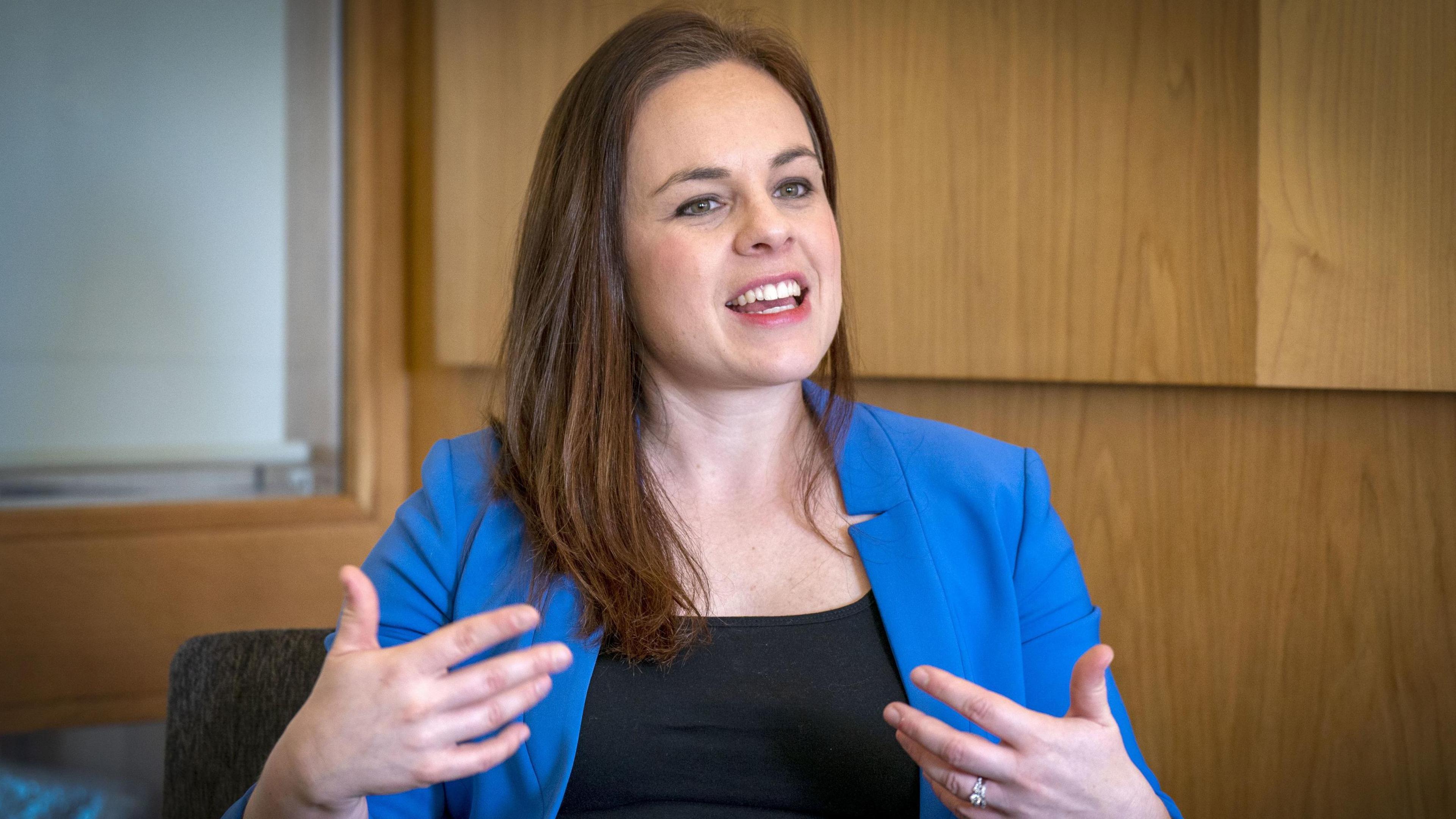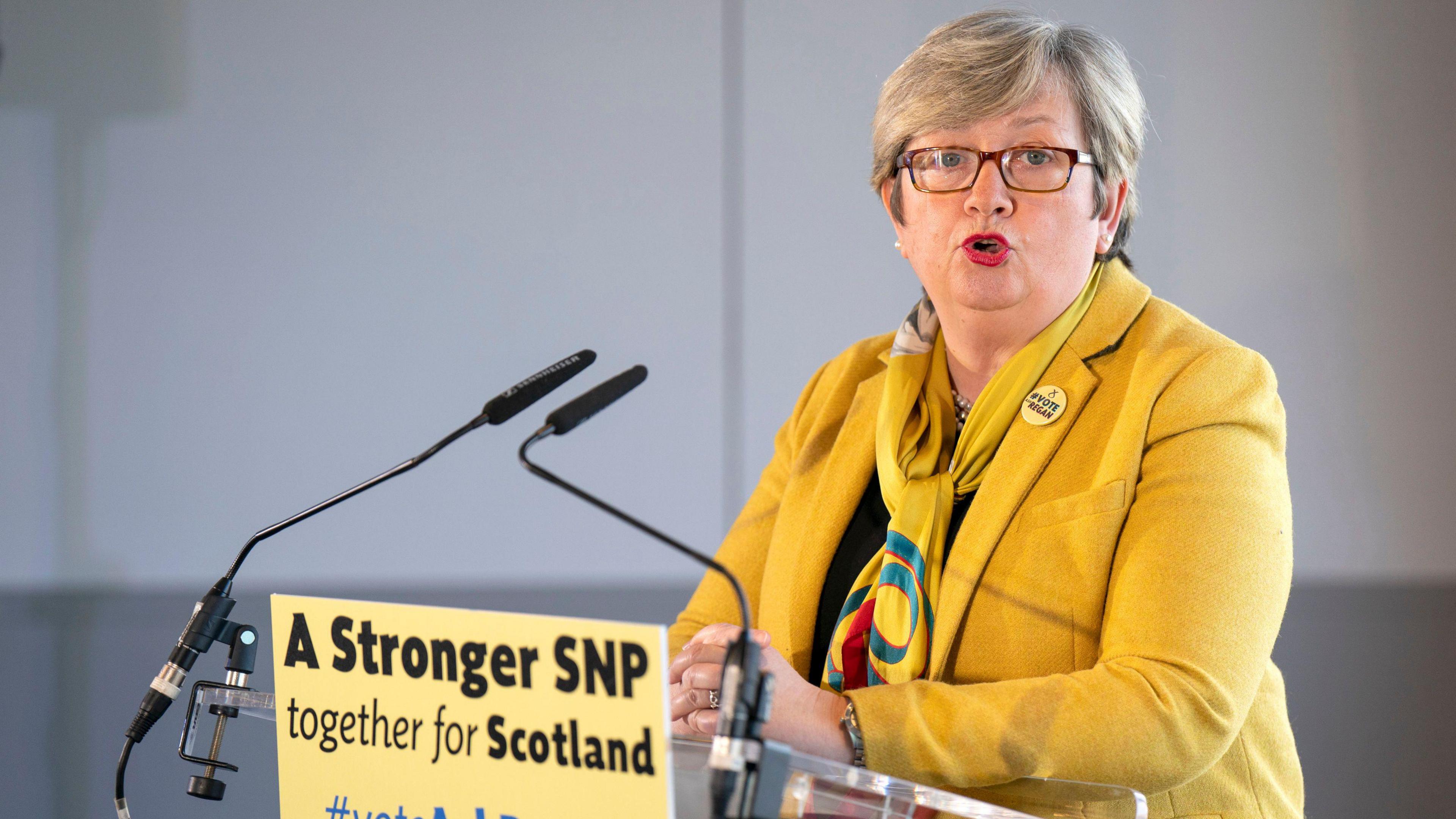Forbes: Political misogyny 'not unique' to SNP

Kate Forbes said western democracies were "struggling" with misogynistic abuse
- Published
Kate Forbes has insisted misogyny in politics is “not unique” to the SNP but must be “rooted out” of the party, after criticism from two former MPs.
The Deputy First Minister said the “polarising and intoxicating” nature of the western political climate meant democracies were “struggling” to hold back a tide of prejudice against women.
Ousted former SNP MP Joanna Cherry and ex-drugs minister Elena Whitham both highlighted abuse they had faced from within the party last week.
Ms Forbes told BBC Radio’s Good Morning Scotland failure to tackle such abuse would lead to women avoiding future political roles.
Joanna Cherry loses seat as SNP suffers Edinburgh defeats
- Published5 July 2024
Drugs minister quits due to post-traumatic stress
- Published6 February 2024
Ms Cherry said she would not miss the ”stinking misogyny” of some men within the SNP after she was described as a “pathetic, narcissistic, abusive loser” by a former party worker.
Posting on X, external following her defeat to Labour in the Edinburgh South West seat, she accused the party of “ignoring complaints” and called on senior members to act.
Ms Whitham also said misogynistic abuse “nearly broke” her after standing down as drugs minister last year citing post-traumatic stress.
Ms Forbes said she had spoken to both women, but admitted she was “unsurprised” by their experiences.

Joanna Cherry accused some men in the SNP of "stinking misogyny"
She added that women across the political spectrum faced misogynistic abuse, and said it was not exclusive to the SNP or Scotland as a whole.
She said: “In terms of being in frontline politics, I don’t think there is any surprise that there is misogyny across the public square.
“This is an issue right across perhaps western democracies we are struggling with enormously, with social media, with the polarising and intoxicating nature of our politics and I think if you recall it was one of the reasons that Nicola Sturgeon said that she was standing down.
“So it’s a much bigger problem and one that those of us who are in senior roles within government and who are women need to do as much as we can to root out.
“And we also need to be a role model for other women, because the biggest risk therefore is that other women don’t want to stand in politics.”
Forbes backs Swinney to improve SNP 'integrity'
- Published8 July 2024
Independence supporters 'disillusioned' with SNP - Cherry
- Published7 July 2024
The SNP experienced a disastrous election night, dropping from 48 MPs to just nine.
Ms Forbes said the election had been fought on a “change” agenda with voters focused on unseating the Conservative government at Westminster.
But she refused to lay the blame at the door of First Minister John Swinney, who only became leader two weeks before Rishi Sunak called the ballot.
“I do think we need to change in ensuring our policy agenda matches the public's priorities,” she said.
"I think it's allowing John Swinney - who was only in post two weeks before the election was called, I think I was in post 10 days - to set out and deliver on his agenda of tackling poverty, of economic growth, of ensuring our public services are robust and resilient.
"And then perhaps the third one is, I'm a democrat and the secret ballot never lies, and therefore we need to take on board the message that the public have sent us in preparation for (the Scottish elections in) 2026."